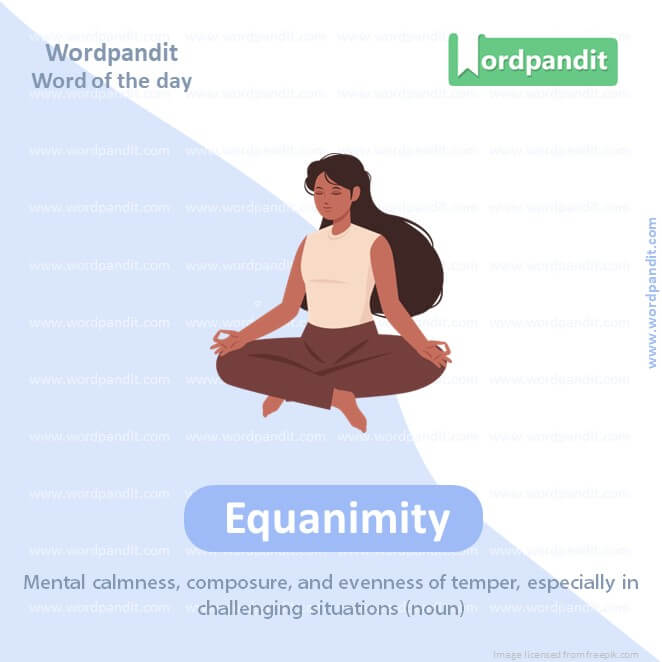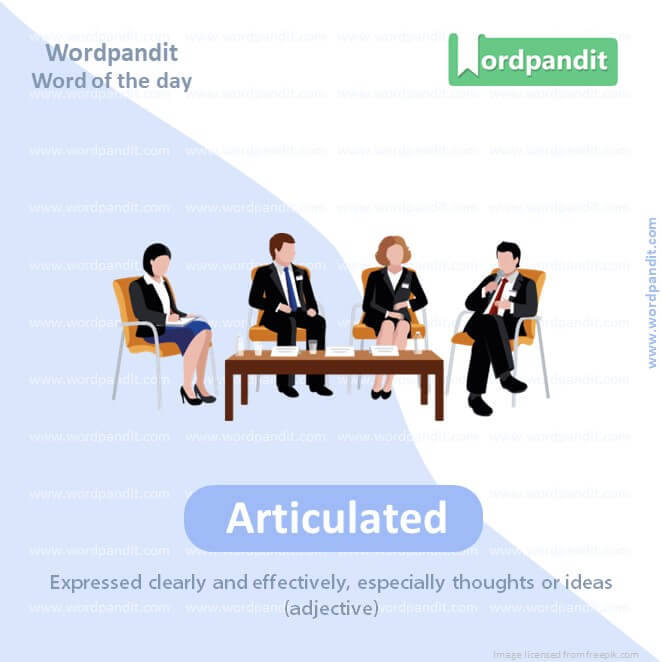Daily Vocabulary Words: List of Daily Used Words in Leading Indian Newspapers
Hi there. Welcome to this special section @ Wordpandit. Our endeavour here is straightforward: highlighting daily vocabulary words that you would come across in leading newspapers in the country. We have included the following newspapers in our selection:
• The Times of India
• The Economic Times
• Hindustan Times
• Mint
• Indian Express
We are putting in extensive work to develop your vocabulary. All you have to do is be regular with this section and check out this post daily. This is your repository of commonly used words; essentially, we are posting a list of daily used words. Hence, this has significant practical application as it teaches you words that are commonly used in leading publications mentioned above.
Visit the website daily to learn words from leading Indian newspapers.

WORD-1: Perpetrator
CONTEXT: No stranger to terrorism, both as a perpetrator and victim, Pakistan has been jolted by three high-profile terror attacks recently within seven days.
SOURCE: Indian Express
EXPLANATORY PARAGRAPH: A perpetrator is someone who commits a wrongdoing or a crime, such as stealing or hurting others. It’s like when someone breaks the rules and does something bad.
MEANING: A person who commits a crime or wrongdoing, often seen as the one responsible for the action (noun).
PRONUNCIATION: pur-PET-ray-ter
SYNONYMS: Culprit, offender, wrongdoer, criminal, assailant
USAGE EXAMPLES:
1. The police apprehended the perpetrator of the robbery.
2. She was identified as the perpetrator of the online harassment.
3. The perpetrator of the vandalism was caught on security cameras.
4. The court will determine the punishment for the perpetrator of the crime.

WORD-2: Equanimity
CONTEXT: While displaying equanimity publicly, the Chinese are reported to have leaned heavily on the Pakistanis behind the scenes to counter this threat effectively.
SOURCE: Indian Express
EXPLANATORY PARAGRAPH: Equanimity means staying calm and composed, even in difficult or stressful situations. It’s like when you keep a steady mind and don’t let problems make you feel too upset.
MEANING: Mental calmness, composure, and evenness of temper, especially in challenging situations (noun).
PRONUNCIATION: ee-kwuh-NIM-i-tee
SYNONYMS: Composure, calmness, serenity, tranquility, poise
USAGE EXAMPLES:
1. Despite the chaos, she faced the situation with equanimity.
2. His equanimity in the face of criticism impressed his colleagues.
3. The leader’s equanimity during the crisis reassured the team.
4. Meditation helps maintain a state of equanimity in daily life.

WORD-3: Alienation
CONTEXT: These include the alienation of its ethnic minorities, particularly in Balochistan and the tribal belt; encouragement to religious extremism and sectarianism; use of terror as an instrument of state policy.
SOURCE: Indian Express
EXPLANATORY PARAGRAPH: Alienation is when someone feels disconnected or separated from others, like they don’t belong or are isolated. It’s like when you feel left out of a game or a group activity.
MEANING: The state of feeling isolated, separated, or estranged from others, often due to differences or lack of understanding (noun).
PRONUNCIATION: AY-lee-uh-NAY-shun
SYNONYMS: Isolation, estrangement, detachment, separation, disconnection
USAGE EXAMPLES:
1. His constant travel led to a sense of alienation from his family.
2. The novel explores themes of loneliness and alienation.
3. Cultural differences can sometimes lead to feelings of alienation.
4. The new student struggled with feelings of alienation in the unfamiliar environment.
WORD-4: Festering
CONTEXT: Pakistan has had a festering border management problem with Iran, with both sides accusing each other of harbouring terrorists.
SOURCE: Indian Express
EXPLANATORY PARAGRAPH: When something, like a problem or an emotional wound, gets worse over time without being resolved, it’s festering. It’s like when a small cut on your skin doesn’t heal and starts to hurt more and more.
MEANING: To worsen or intensify, especially when referring to a problem or emotional wound that is not addressed (verb).
PRONUNCIATION: FES-ter-ing
SYNONYMS: Worsening, deteriorating, aggravating, escalating, exacerbating
USAGE EXAMPLES:
1. The unresolved conflict was festering and affecting team morale.
2. Ignoring the issue only allowed it to fester and cause more problems.
3. Her resentment towards her colleague kept festering over time.
4. The lack of communication led to misunderstandings that continued to fester.

WORD-5: Populace
CONTEXT: This has caused resentment against them amongst the local populace.
SOURCE: Indian Express
EXPLANATORY PARAGRAPH: The populace refers to all the people in a particular country, city, or community. It’s like when you talk about everyone who lives in your neighborhood or town.
MEANING: The general public or population of a country, city, or community (noun).
PRONUNCIATION: POP-yuh-liss
SYNONYMS: Population, citizenry, public, community, inhabitants
USAGE EXAMPLES:
1. The new law had widespread support among the populace.
2. The safety measures were implemented to protect the health of the populace.
3. The event attracted a diverse range of people from the populace.
4. The government’s policies aimed to improve the lives of the entire populace.
WORD-6: Hackneyed
CONTEXT: This hackneyed response essentially signals the doubling down on the use of force — a failed strategy in the past.
SOURCE: Indian Express
EXPLANATORY PARAGRAPH: Hackneyed refers to something that is overused, clichéd, or lacking originality, making it uninteresting or predictable. It’s like when you hear the same joke many times, and it stops being funny.
MEANING: Lacking originality or freshness, overused to the point of becoming clichéd or uninteresting (adjective).
PRONUNCIATION: HAK-need
SYNONYMS: Clichéd, trite, overused, stale, worn-out
USAGE EXAMPLES:
1. The speech was filled with hackneyed phrases and clichés.
2. The movie’s plot was predictable and filled with hackneyed tropes.
3. Her writing style was criticized for being hackneyed and lacking creativity.
4. The comedian’s jokes were hackneyed and failed to elicit laughter.
WORD-7: Pragmatism
CONTEXT: Flashes of wisdom and pragmatism in the discourse of the Pakistani establishment have remained just that.
SOURCE: Indian Express
EXPLANATORY PARAGRAPH: Pragmatism is about being practical and focusing on what works or what is useful, rather than theoretical ideas or idealistic beliefs. It’s like when you choose the most efficient way to solve a problem, even if it’s not the most exciting.
MEANING: A practical approach or attitude focused on what is practical, effective, or useful rather than theoretical or idealistic considerations (noun).
PRONUNCIATION: PRAK-muh-tiz-uhm
SYNONYMS: Practicality, realism, practical approach, utilitarianism, common sense
USAGE EXAMPLES:
1. Her pragmatism in business decisions led to successful outcomes.
2. The politician’s pragmatism allowed for compromise and progress.
3. In times of crisis, pragmatism often trumps idealism.
4. The team’s pragmatism helped them adapt to changing circumstances.

WORD-8: Articulated
CONTEXT: I agree with Sandel’s well-articulated views but I am not sure whether these editorial pages are imbued with Sandel’s political philosophy.
SOURCE: Indian Express
EXPLANATORY PARAGRAPH: When we express our thoughts, ideas, or feelings clearly and effectively, we are articulating them. It’s like when you explain something in a way that everyone understands.
MEANING: Expressed clearly and effectively, especially thoughts or ideas (adjective).
PRONUNCIATION: ar-TIK-yuh-lay-ted
SYNONYMS: Expressed, communicated, stated, vocalized, enunciated
USAGE EXAMPLES:
1. She articulated her concerns about the project during the meeting.
2. The artist’s paintings effectively articulated the beauty of nature.
3. His speech articulated the need for change in the organization.
4. The article articulated the challenges faced by small businesses.
WORD-9: Imbued
CONTEXT: I agree with Sandel’s well-articulated views but I am not sure whether these editorial pages are imbued with Sandel’s political philosophy.
SOURCE: Indian Express
EXPLANATORY PARAGRAPH: Imbued means to be filled or saturated with a particular quality, feeling, or characteristic. It’s like when you feel full of happiness after spending time with loved ones.
MEANING: Filled with or infused with a particular quality, feeling, or characteristic (verb).
PRONUNCIATION: im-BYOOD
SYNONYMS: Filled, saturated, infused, permeated, instilled
USAGE EXAMPLES:
1. Her artwork was imbued with emotion and meaning.
2. The ceremony was imbued with a sense of tradition and honor.
3. The novel is imbued with themes of love and redemption.
4. The culture of the company is imbued with a spirit of innovation.
WORD-10: Presuming
CONTEXT: Presuming that a version of market-driven finance, trade flow of capital, people and secular politics was the only way forward and ignoring the failure of this to reduce inequality, create employment, or protect the environment.
SOURCE: Indian Express
EXPLANATORY PARAGRAPH: Presuming means to assume something is true without clear evidence or confirmation. It’s like when you guess the answer to a question without really knowing if you’re right.
MEANING: Assuming something is true without clear evidence, often based on speculation or guesswork (adjective).
PRONUNCIATION: pri-ZOOM-ing
SYNONYMS: Assuming, supposing, guessing, speculating, conjecturing
USAGE EXAMPLES:
1. He made a presuming statement about the outcome without knowing all the facts.
2. She was criticized for presuming the intentions of others without asking.
3. Presuming he would be accepted, he started planning for the new job.
4. The article is full of presuming assertions without concrete proof.
Vocabulary Synonyms
In the intricate weave of language learning, ‘vocabulary synonyms’ emerge as a key element that adds depth and variety to expression. These different words with similar meanings enrich our vocabulary, enabling us to communicate with precision and clarity. However, grasping ‘vocabulary synonyms’ successfully warrants a systematic approach.
When approaching ‘vocabulary synonyms’, context is your compass. Engage with various reading materials like novels, newspapers, and digital content to explore and understand how these synonyms are used in different situations. This exposure will fortify your comprehension of ‘vocabulary synonyms’ and their usage nuances.
Employing memory-enhancing techniques can cement your grasp on ‘vocabulary synonyms’. Employing flashcards is an effective method where one side contains the word you know, and the other side has its synonyms. Also, creating mind maps, linking the known word to its various synonyms, can be an engaging way to learn ‘vocabulary synonyms’.
To master ‘vocabulary synonyms’, take an active role in application. Regular conversations, written communications, digital interactions – all of these offer ample opportunities to utilize learnt synonyms. This practice refines your application and accelerates internalization of ‘vocabulary synonyms’.
Embracing language exchange platforms or engaging with native speakers can provide invaluable feedback on the usage of ‘vocabulary synonyms’. This interaction can further enhance your understanding of the cultural idiosyncrasies of word usage.
In conclusion, learning ‘vocabulary synonyms’ is a rewarding pursuit that adds layers of complexity to your language skills. A thoughtful blend of diversified resources, memory tools, practice, and interactive learning can make the task of mastering ‘vocabulary synonyms’ an enjoyable and fruitful journey. Every synonym learnt paints your vocabulary with different shades of understanding, making your language canvas all the more vivid and spectacular!













